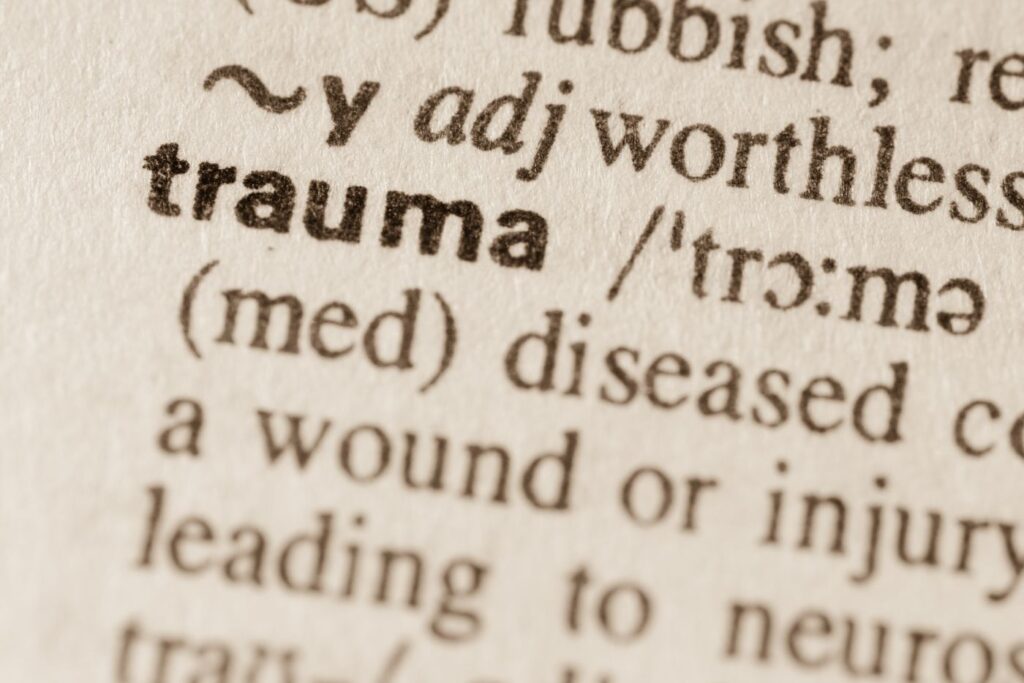Do You Need Dual Diagnosis Rehab or a Trauma-Focused Program?

If you are facing mental health challenges, such as addiction or the effects of trauma, finding the right treatment can feel both urgent and overwhelming at the same time. Particularly if you find yourself struggling not just with mental wellness, but also substance use issues at the same time – a condition known as dual diagnosis.
In these circumstances, you might be wondering what program would be the best fit for you – dual diagnosis rehab or a trauma-focused program. While both approaches are designed to improve mental well-being, they serve different needs.
At Yatra Centre, we specialize in trauma-focused treatment, helping people heal from deep-seated emotional wounds without relying on a dual diagnosis framework. Understanding the differences between these two types of treatment can help you make an informed decision regarding your recovery journey.
Differences Between Dual Diagnosis Rehab and Trauma-Focused Treatment
To determine whether you need dual diagnosis rehab or a trauma-focused program, let us first take a look at the definitions of dual diagnosis and trauma separately. This will help clarify why for some people it is best to focus on their two co-occurring disorders simultaneously – with dual diagnosis rehab for example – while for others, going to the root of trauma, thanks to trauma-focused treatment, is the way forward.
What is Dual Diagnosis?
Dual diagnosis (also referred to as comorbidity or co-occurring disorders) happens when a person is suffering from both a mental health condition and a substance use disorder (SUD) at the same time. The connection between the two can be complicated, particularly as both interact and reinforce each other over time. Furthermore, while substance use can seem like a way of dealing with the pain of trauma, a substance use disorder can also appear prior to a traumatic event. It can also, of itself, lead to distressing events, sometimes repeatedly.
Substance use causes modifications in brain chemistry, while trauma causes changes in the body and nervous system. These can lead to further deterioration of a person’s mental health, hence the need to seek professional help.
What Is Dual Diagnosis Rehab?
Dual diagnosis rehab is designed for people who struggle with both a mental health disorder and a substance use disorder at the same time. The goal is to treat both conditions simultaneously, without which these conditions may trigger or worsen each other. Dual diagnosis rehab programs typically include:
- Medication management: the use of prescription medication to help with mental health symptoms.
- Addiction treatment: an initial detox period, followed by a focus on the causes of a person’s recourse to substance use, and developing a relapse prevention strategy.
- Behavioral therapies: therapies or healing modalities such as CBT (Cognitive Behavioral Therapy), which aim to help people change their behaviours by becoming aware of how they arise. Through identifying self-sabotaging thoughts and negative emotional patterns, it becomes possible to replace them with nurturing, empowering behaviors, that support sobriety.
- Group therapy and support networks: an essential component of any long-term recovery strategy, establishing and maintaining support networks provides the regular company of peers, and creates a solid structure to lean on for anyone in recovery.
What is Trauma?

Trauma refers to an experience that is so distressing or disturbing that it overwhelms a person’s ability to respond, and to process or fully take in what is happening. Here, we are concerned not so much with past traumatic events in themselves, but rather with their long-lasting, and sometimes far-reaching, effects. The consequences of trauma manifest on several levels – physiological (various systems of the body, nervous, endocrine, circulatory, digestive etc), mental (intrusive or compulsive thoughts, obsessions and so on) and emotional (anxiety, constant edginess, sense of insecurity). As a result, people affected by trauma find ways to cope with these trauma-induced symptoms – one of which can be resorting to substance use.
What Is a Trauma-Focused Program?
A trauma-focused program, like the one at Yatra Centre, prioritizes healing trauma at its root, rather than treating it as a secondary condition alongside addiction. These programs focus on:
- Processing unresolved trauma through evidence-based therapies
- Regulating the nervous system to reduce emotional overwhelm
- Helping you rebuild trust and a sense of safety, within yourself and your relationships
- Holistic healing approaches, such as somatic therapy, EMDR, and mindfulness
Unlike dual diagnosis rehab, trauma-focused treatment does not assume that addiction or mental illness must be treated within a rigid medical framework. Instead, it acknowledges that unresolved trauma can itself be the cause of any behaviors that subsequently develop as coping mechanisms. It can, for example, create patterns of self-medication for emotional distress. However, once this distress is addressed, and the person no longer feels the need to escape or numb themselves, strategies such as resorting to substance use may fall away of their own accord.
Who Is Dual Diagnosis Rehab Best Suited For?
Dual diagnosis rehab is most appropriate for people who:
- Have a diagnosed mental health condition AND a substance use disorder
- If you have been diagnosed with bipolar disorder, schizophrenia, severe depression, anxiety, PTSD or other conditions, alongside addiction, a structured dual diagnosis rehab program may be of value.
- Rely on medication for symptom management
- If you’ve been relying on medication to stabilize your condition, a dual diagnosis program will complement your treatment by providing counselling and psychiatric support. You will also be introduced to other therapeutic modalities that do not depend on medication.
- Struggle with severe addiction requiring detox
- If you experience severe withdrawal symptoms when trying to quit substances, it is probably not appropriate, or too early, to focus primarily on your trauma. Dual diagnosis rehab, with a medically supervised detox, will help first bring your mind and body into a more balanced state, after which you can reassess your situation and discuss the next steps with your medical staff.
If none of the above fully apply to you, it may be that a dual diagnosis rehab program is not required in your case. Instead, you might benefit more from a trauma-focused treatment program that gets to the root cause of your distress without relying on a clinical dual-diagnosis model.
How Trauma-Focused Treatment Works

Trauma can leave a person with deep emotional and psychological wounds. A trauma-focused program is designed to help you process and release pain, and to heal these wounds in a safe, supportive environment.
At Yatra Centre, our inpatient trauma-focused treatment includes:
1. Somatic Therapy
Unlike talk therapy alone, somatic therapy helps you let go of trauma stored in the body. Techniques like breathwork, movement therapy, and body awareness exercises allow you to process trauma without needing to relive it.
2. EMDR (Eye Movement Desensitization and Reprocessing)
EMDR is a form of exposure therapy that helps you reprocess traumatic memories in a way that reduces their emotional charge. This is done by recalling distressing past experiences in a safe setting and under the guidance of a trained therapist. While revisiting these memories, the person performs left to right movements with their eyes, or other motions indicated by the therapist. This helps associate different neural pathways with recollection of trauma, thereby rewiring the brain’s response. EMDR can dramatically improve PTSD symptoms without the need for medication.
3. Nervous System Regulation
Trauma can keep your nervous system in a state of chronic fight-or-flight – in other words, your body still believes you are facing imminent danger, and is all wired up ready to run or fight for survival. Trauma-focused treatment teaches you how to balance your nervous system, freeing you from symptoms such as overwhelm, hypervigilance or emotional numbness.
4. Attachment and Relationship Healing
Some forms of trauma are related to issues such as abandonment, betrayal, or unhealthy relationships. In such cases, a trauma-focused program helps you find a sense of empowerment. You develop faith in your discernment, as well as the confidence to establish healthy boundaries, so that you can rebuild a sense of trust in yourself and others.
5. Holistic Healing Methods
Approaches like meditation, yoga, and cold therapy complement trauma treatment by helping you reconnect with your body and emotions in a gentle, non-triggering way. These activities that nurture the mind-body connection in the service of healing can help release deep seated fears and emotions. Furthermore, thanks to their powerful effect in balancing the nervous system, they help dissolve the cause of many primary effects of trauma.
Does Dual Diagnosis Rehab Fully Address Trauma?
Dual diagnosis aims to address two damaging conditions simultaneously. This approach prevents one condition from worsening or progressing while the focus of treatment is on the other one. But in some cases, there is a clear dominant condition affecting the individual more. And which therefore needs prioritizing. If this predominant issue is quite obviously trauma, then dual diagnosis rehab may not be a sufficiently focused approach to fully address that trauma.
Furthermore, many dual diagnosis rehab programs focus primarily on symptom management – which is not the same as deep trauma healing. While they provide essential support for addiction and mental health stabilization, they may not fully resolve the underlying trauma that caused the emergence of those struggles in the first place.
Limitations of Dual Diagnosis Rehab for Trauma Survivors

- Some centres rely on medication management rather than root-cause healing
- Less emphasis on nervous system regulation and body-based healing
- Focus on stabilization over deep transformation
- Group therapy models that may not feel safe for trauma survivors
If you do not have a severe mental health disorder requiring medical intervention, you might find trauma-focused therapy more effective than dual diagnosis rehab.
Why Healing Trauma Can Improve Long-Term Recovery Outcomes
Unresolved trauma is one of the biggest drivers of addiction, anxiety, depression, and even chronic health issues. If your struggles stem from past emotional wounds, healing them at the source can create long-term relief instead of temporary symptom management.
At Yatra Centre, we specialize in trauma recovery, offering a safe space for deep emotional healing without relying on a dual diagnosis model. Our holistic approach helps you process your trauma, regulate your nervous system, and regain a sense of control over your life.If you’re ready to heal at the root level, contact Yatra Centre today. True recovery from trauma is possible, and we’re here to guide you every step of the way.

Mike Miller
Founder & Clinical Director
Mike Miller is a Certified Clinical Trauma Professional, Certified Addiction Therapist, and EMDR Therapist with advanced training in trauma and mental health. He has over 20 years experience delivering behavioural health treatment to clients internationally. As a leading trauma expert, Mike developed the Yatra programme in 2022 to accelerate healing and support lasting transformation.
Subscribe to our newsletter.
Subscribe to our newsletter and join a supportive community dedicated to understanding, overcoming, and transforming personal trauma.
Related Articles
Can Trauma Lead to Hypersexual Behavior? A Closer Look
Trauma can disrupt a person’s life in multiple ways, to the point of affecting aspects of…...
Why a Somatic Healing Retreat Might Be Exactly What You Need
You’ve tried therapy. You’ve read the books. You’ve done your best to manage stress, anxiety, or…...
Trauma Healing and Rehab in Thailand: An Interview with Yatra
Addiction and unresolved trauma affect millions of individuals and families around the world. These challenges are…...
Can PTSD Meds for Nightmares Help You Sleep?
Research from the National Center for PTSD shows that over 90% of Vietnam vets with post‑traumatic…...



